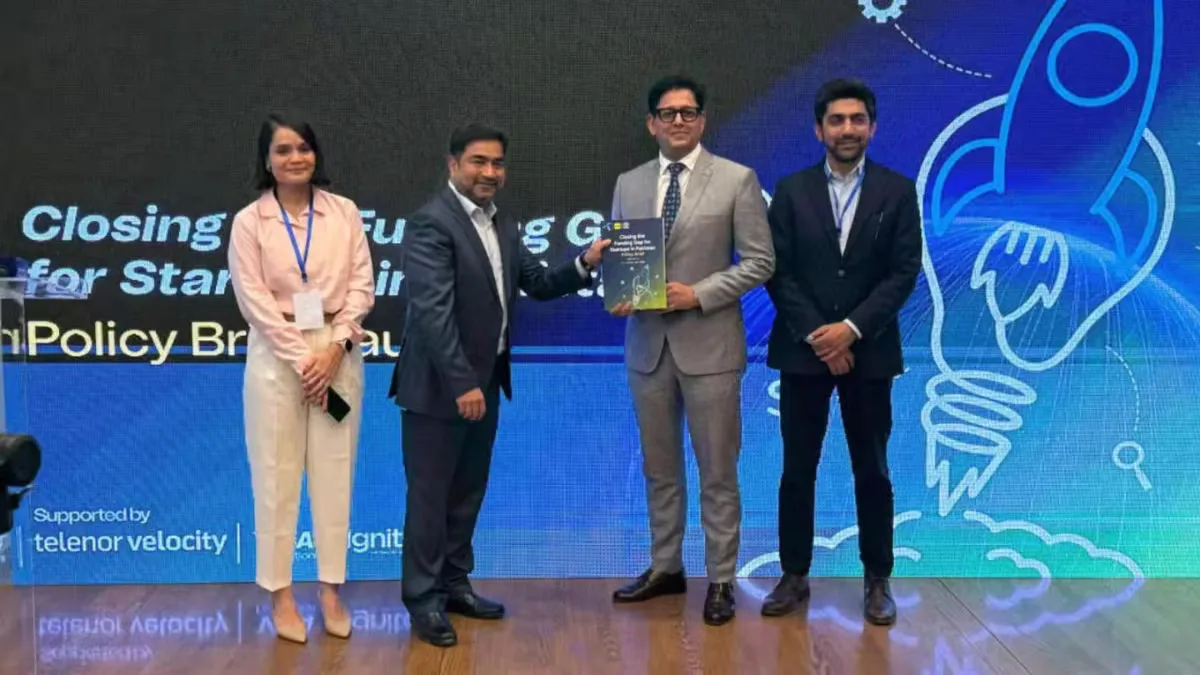Islamabad, June 2025: Pakistan’s growing tech companies are getting a new boost! Telenor Pakistan, Invest2Innovate (i2i), and the Special Technology Zones Authority (STZA) teamed up to release a new plan called “Closing the Funding Gap for Startups in Pakistan.” They held a special event at Telenor’s campus in Islamabad to share this plan, with help from Telenor Velocity, Ignite, and Visa.
This new plan is a roadmap for Pakistan’s startups. It aims to simplify rules and taxes, provide broader access to funding, create easier investor exits, and build better support for entrepreneurs. This comprehensive strategy was developed using international best practices and insights from local experts.
Read More: SC Issues Order: New Construction Restrained in Karachi DHA Park
The launch was attended by public and private sector representatives, including Syed Nadir Hussain Shah (Project Director IT & Telecom, SIFC), Khurrum Ashfaque (CEO, Telenor Pakistan), Sarah Munir (CEO, Invest2Innovate), Hamza Saeed Orakzai (Chief Market Development Officer, STZA), Bilal Abbasi (GM, Ignite), Zeeshan Khattak (Commissioner, SECP), and Ali Aamir (Visa Pakistan).
READ MORE: Lt. General Sajjad Ghani (Retd) Steps Down as WAPDA Chairman
Commenting on the initiative, Khurrum Ashfaque noted that accessible and flexible funding is critical for startups to scale and integrate into the digital economy. “This policy brief outlines necessary steps toward building a sustainable innovation ecosystem,” he stated.
Syed Nadir Hussain Shah emphasized that the brief aligns with Pakistan’s broader economic and investment goals. “SIFC supports initiatives that foster innovation and strengthen Pakistan’s position as a regional technology hub,” he said.
Sarah Munir of i2i highlighted the importance of structural reforms: “Closing Pakistan’s startup funding gap isn’t just about capital—it’s about ensuring the right environment exists for investment to flow.”
Pakistan’s startup ecosystem has expanded in recent years, driven by fintech, e-commerce, and logistics. Startup funding peaked at $355 million in 2022, but by 2024, investment had dropped by 88%, underlining the urgency for policy intervention. The e-commerce sector hit $5.2 billion in 2023, while IT exports totaled $3.2 billion in FY24.
Hamza Saeed of STZA reiterated the importance of collaboration between government, academia, and industry. “This policy brief identifies key challenges and suggests policy tools to help startups contribute more effectively to job creation and technological development,” he noted.
The Pakistan Startup Policy Brief aims to guide the next phase of ecosystem growth by addressing systemic funding barriers and supporting innovation through regulatory clarity and investor confidence. The initiative reflects a broader commitment to building an enabling environment for startups in Pakistan.









